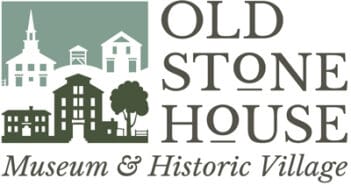Mr. Woodward remained as a teacher till the close of 1827, when a Mr. Hill took the school. I have not been able to find out where Mr. Hill came from or to what place he went; but he left rather suddenly in the middle of a term, in April, 1828, and Judge Isaac Parker of Coventry, who was even then an old resident of this region, became principal and held that relation till the Rev. A. L. Twilight came here in Aug. 1829.
With the coming of Mr. Twilight a new history of the institution begins… He came here with five years experience as a teacher with the intention of making it his life work. His ambition was to make this one of the best academies in the state, and he entered upon the work with the zeal and energy of one who meant business.
But now a want confronted Mr. Twilight. The village of Brownington was a very large one. I mean by “large” that it covered a good deal of ground, but there was no compactness to it. The extremes were three miles apart but the different families were essentially one in their tastes and had always worked in entire harmony in church and society. The Gilberts, Spencers, Grows, Eatons and Wards in the south district; the Smiths, Brighams, Strongs, Stewarts and Baxters in the center; the Robinsons, Grosses and others on the north hill; and the Huntoons in the “valley,” had become knit together by sacred social ties and formed a community strong in all those characteristics that go to make a great people, and constituted a fair field for the work of an educational institution. But there was no central point. It might have been said of Brownington as it was once said of Washington, that it was a place of magnificent distances, on a small scale.
Mr. Twilight occupied for a time the same house with the family of Luke Spencer, who lived on what was afterwards called the Rice farm, nearly a mile from the academy. He soon had a house of his own, however, having built the one opposite the Stone house, known as the Parker house where Wilder Parker lived for so many years. He designed this for a boarding house, but wants of the school soon outgrew it and he began to urge upon the trustees the importance of having a boarding house of large dimensions.
